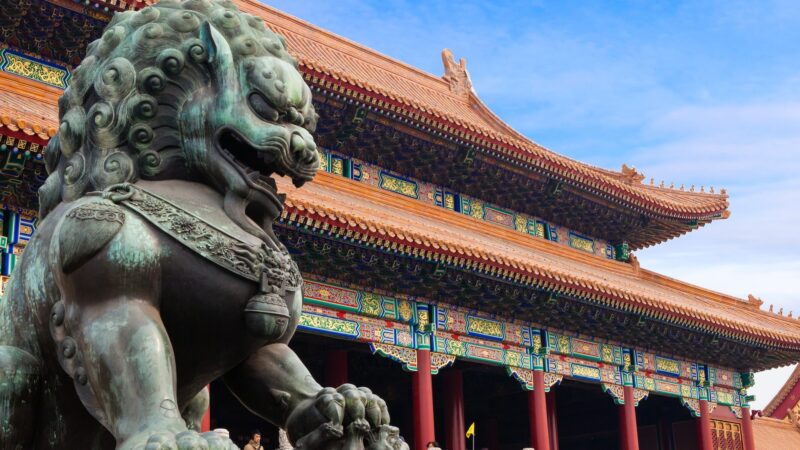The Chinese Revolution – Good Thing, Bad Thing?
This is an extract from the transcript of The Chinese Revolution – Good Thing, Bad Thing? (1949 – Present). Do. The. Reading. and subscribe to Flappr’s YouTube channel!
“Tradition is like a chain that both constrains us and guides us. Of course, we may, especially in our younger years, strain and struggle against this chain. We may perceive faults or flaws, and believe ourselves or our generation to be uniquely perspicacious enough to radically improve upon what our ancestors have made – perhaps even to break the chain entirely and start afresh.
Yet every link in our chain of tradition was once a radical idea too. Everything that today’s conservatives vigorously defend was once argued passionately by reformers of past ages. What is tradition anyway if not a compilation of the best and most proven radical ideas of the past? The unexpectedly beneficial precipitate or residue retrieved after thousands upon thousands of mostly useless and wasteful progressive experimentation.
To be a conservative, therefore, to stick to tradition, is to be almost always right about everything almost all the time – but not quite all the time, and that is the tricky part. How can we improve society, how can we devise better governments, better customs, better habits, better beliefs without breaking the good we have inherited? How can we identify and replace the weaker links in our chain of tradition without totally severing our connection to the past?
I believe we must begin from a place of gratitude. We must hold in our minds a recognition that life can be, and has been, far worse. We must realize there are hard limits to the world, as revealed by science, and unchangeable aspects of human nature, as revealed by history, religion, philosophy, and literature. And these two facts in combination create permanent unsolvable problems for mankind, which we can only evade or mitigate through those traditions we once found so constraining.
To paraphrase the great G.K. Chesterton: “Before you tear down a fence, understand why it was put up in the first place.” I cannot fault a single person for wishing to make a better world for themselves and their children, but I can admonish some persons for being so ungrateful and ignorant, they mistake tradition itself as the cause of every evil under the sun. Small wonder then that their hairbrained alternatives routinely overlook those aspects of society without which it cannot function or perpetuate itself into the future.
And there are other things tied up in tradition besides moral guidance or the management of collective affairs. Tradition also involves how we delve into the mysteries of the universe; how we elevate the basic needs of food, shelter, and clothing into artforms unto themselves; how we represent truth and beauty and locate ourselves within the vast swirling cosmos beyond our all too brief and narrow experience.
It is miraculous that we have come as far as we have. And at any given time, we can throw that all away, through profound ingratitude and foolish innovations. A healthy respect for tradition opens the door to true wisdom. A lack of respect leads only to novelty worship and malign sophistry.
Now, not every tradition is equal, and not everything in a given tradition is worth preserving, but like the Chinese who show such great deference to the wisdom of their ancestors, I wish more in the West would admire or even learn about their own.
Like the Chinese, we are the legatees of a glorious tradition – a tradition that encompasses the poetry of Homer, the curiosity of Eratosthenes, the integrity of Cato, the courage of Saint Boniface, the vision of Michelangelo, the mirth of Mozart, the insights of Descartes, Hume, and Kant, the wit of Voltaire, the ingenuity of Watt, the moral urgency of Lincoln and Douglas.
These and many more are responsible for the unique tradition into which we have been born. And it is this tradition, and no other, which has produced those foundational ideas we all too often take for granted, or assume are the defaults around the world. I am speaking here of the freedom of expression, of inquiry, of conscience. I am speaking of the rule of law, and equality under the law. I am speaking of inalienable rights, of trial by jury, of respect for women, of constitutional order and democratic procedure. I am speaking of evidence based reasoning and religious tolerance.
Now those are all things I wouldn’t give up for all the tea in China. You can have Karl Marx. We’ll give you him. But these are ours. They are the precious gems of our magnificent Western tradition, and if we do nothing else worthwhile in our lives, we can at least safeguard these things from contamination, or annihilation, by those who would thoughtlessly squander their inheritance.”

